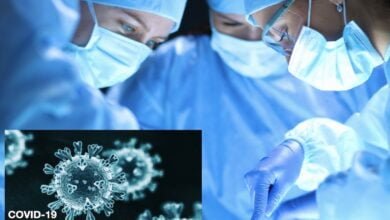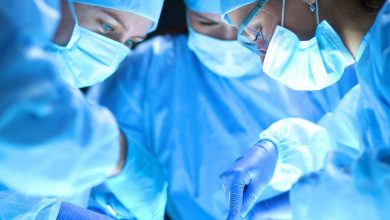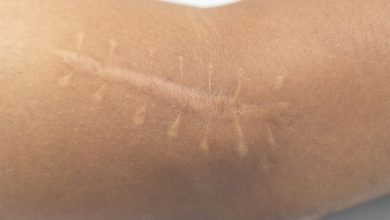Preoperative Preparation
Dos and Don’ts before Surgery
There are many precautions to take during the preoperative period to ensure that your surgery process will go smoothly and to prevent the risk of complications. Please read carefully from beginning to end and follow the instructions below, in order to make the necessary preoperative preparations properly. Please contact us if you have any questions about these instructions.
- We want you to have your surgery when you are physically and mentally at your best. For this reason, the preoperative preparation period is of great importance. Therefore;
- During the period of surgery, you should not suffer from Coronavirus (COVID-19) disease. If you have already had this disease before and recovered easily, at least 4 weeks should have passed since your recovery. If you have had this disease severely and had to be hospitalized for treatment, this period should be a bit longer. To find out if you are ready for plastic surgery, you should seek the opinion of the physicians who treated you.
- It is of vital importance that both you and the person who will accompany you take serious precautions against the Coronavirus and stay in social isolation for a total period of approximately 1 month consisting of 14 days before and 14 days after the surgery.
- It is important to use a private vehicle rather than public transportation to get to and from the hospital and clinic during the operation period to reduce the risk of transmission. These precautions should be taken not only before surgery, but also in the postoperative period.
- In public transport vehicles and indoor environments, you should definitely wear an FFP3 or FFP2 mask.
- On our page titled plastic surgery safely in pandemic conditions, you can find more detailed information about the precautions to be taken to have plastic surgery safely in the conditions of the pandemic.
- If you have a chronic disease such as heart disease, diabetes, asthma, thyroid (goiter), hypertension, you must be on regular medication; so you should get confirmation from your physician who treats you that your disease will not interfere with the procedure you will have. You should clarify your most recent health condition by having the necessary examinations performed on a date close to the date of surgery.
- You should not have a concurrent disease such as a common cold, flu, or urinary tract infection. If you have such a disease, inform your physician. Your surgery should be postponed if necessary.
- Excessive fatigue, a strict diet, drug use, and excessive alcohol consumption should all be avoided as they all suppress your immune system. You should have a regular sleep pattern.
- You should have a balanced and strong psychological structure during the post-operative period, so postpone your surgery if you do not feel psychologically prepared for the surgery and post-operative period.
- When used before the operation, blood thinners such as Aspirin, vitamins, nutritional supplements sold in pill form, homeopathic substances, weight loss drugs and herbal products such as green tea are likely to cause very serious bleeding problems and drug interactions both during and after surgery; so such products should not be used during the one-month surgery period consisting of 15 days before and 15 days after the surgery.
- Inform your physician about any medications you need to take on a regular basis, such as blood pressure, diabetes, heart, or thyroid drugs. Since these drugs that you use regularly in the preoperative period may be needed on the morning of the surgery and the next day, you should bring them with you to the hospital.
- Birth control pills should be discontinued 4 weeks before the surgery, as they increase the risk of blood clot formation in the legs. Particularly overweight people, smokers, those who have a history of clot formation in their legs, those who have been treated for cancer, or those who will undergo a surgical operation that will take more than 2 hours should pay special attention to this issue.
- Surgery is definitely inconvenient for women who are suspected of being pregnant. Therefore, during the preoperative preparation period, it is of critical importance to take the necessary precautions to avoid getting pregnant between the last menstrual period and the date of surgery. Besides these, some of the ointments used in the postoperative period are inconvenient during pregnancy. For this reason, pregnancy should be avoided for at least 3 months after the surgery, and such ointment and creams should not be used in this period of time.
- If the patient has received treatment due to vein clot formation, she or he should definitely inform the physician.
- Important Note:If you are currently on Roaccutane or a similar medicine containing isotretinoin that is used to treat acne, or if you have used these medicines in the past but it has not been at least one year since you stopped them, you should postpone your surgery because you are likely to experience wound healing problems in the surgical areas.
- Smoking and being overweight put a person at risk for problems with anesthesia, blood circulation, and tissue wound healing; so it should be stopped in the preoperative period, and any plastic surgery should be scheduled after losing the excess weight. Smokers are advised to stop smoking at least one day before their procedure.
- If the patient is mentally depressed or in low spirits, or has other problems in his/her professional or social life in the period, when the surgery is planned, the surgery should be postponed. Particularly in the early postoperative period, It takes time for swelling and bruising to subside and for the desired result to appear. During this period of time, it is of critical importance to ensure that the patient’s psychological state is balanced and he or she is not depressed.
- You should consume juicy and high-fiber foods and avoid alcohol in the last days before the plastic surgery.
- Do not attempt to shave the hair in the operation area (such as the nose, arm, or leg) at home because shaving may cause small incisions on the skin, which may pave the way for infection in the operation area. If shaving is needed in the relevant area, it will be done by the hospital personnel in the hospital just before the operation.
- Nothing, including water, should be consumed for a period of 8 hours before the scheduled surgery. Blood pressure drugs, thyroid drugs, and other regularly used medications can be taken with the surgery staff’s prior approval. If you are on any medications, you should consult your physician.
- If you get a flu infection or develop fever, rash, or “any medical problem” in the days following your preoperative blood tests, you should inform your physician immediately and, if necessary, postpone your surgery.
Preoperative Fasting Time
- It is important to make sure that the stomach is empty in order to avoid nausea, vomiting, and other undesirable problems during and after the operation. Therefore, solid food and liquid food intake, including water, should be discontinued starting 8 hours before the scheduled surgery time.
- Contrary to popular belief, it is not a good option to stay hungry and dehydrated for more than eight hours before the operation. Decreased blood sugar and dehydration of the body is a condition that we do not want. On the other hand, we observe that nausea and vomiting after surgery are more common in cases where gastric secretions accumulate in a stomach that has not worked for a long time. For this reason, we advise you to eat something light and drink plenty of water 8 hours before surgery (set the clock and wake up if necessary), and then stop all oral intake.
The Night before Surgery
- Take a shower.
- Spent the evening resting, and go to bed on time.
Morning of the Surgery
- Some medications that should be taken on a regular basis, such as blood pressure or thyroid drugs, may need to be taken in the morning of the surgery as well. Talk to your physician about this issue beforehand, and if necessary, take your medicine on the morning of the surgery.
- If your surgery will be performed before noon, do not eat or drink anything. Until 8 hours before the surgery, you can drink some tea or water and can have a light breakfast (with toast, etc.).
- Remove your contact lenses. Remove your earrings, necklaces, hairpins, piercing etc. Do not bring valuable things with you.
- Make sure you don’t have any nail polish on your nails or make-up on your face.
- Prefer Easy-to-wear, comfortable clothes and shoes. Prefer front opening clothes rather than that you need to take off over the head.
- After surgery, you will not be allowed to drive back home. Organize your discharge from the hospital accordingly.
Nutritional Supplements That Should Be Discontinued Before Surgery
The consumption of allegedly natural herbal nutritional supplements is increasing with each passing day. Although these products, whether in the form of herbal teas, powders, or pills, can be beneficial in some cases, they can also be harmful by changing the clotting properties of blood or interacting with other drugs in such a way that they increase or decrease their effects during surgery. Green tea, for example, is frequently consumed and can cause serious bleeding problems.
Nutritional supplements that should be discontinued 15 days before surgery:
- Green Tea
- Lemon Juice (regularly drunk every morning for cure purposes.)
- Bilberry (Vaccinium Myrtillus)
- Cayenne (Capsicum Annum)
- Dong Quai (Angelica Sinensis)
- Echinacea (Echinacea Angustifolia)
- Feverfew (Feverfew, Tanacetum Parthenium)
- Fish Oil Capsules
- Garlic (Allium Sativum)
- Ginger (Zingiber Officinale)
- Ginkgo Biloba (Ginkgo Biloba)
- Ginseng (Panax ginseng, panax quinquefolius)
- Hawthorn (crataegus laevigata)
- Kava Kava (piper methysticum)
- Licorice Root (Glycyrrhiza Glabra)
- Ma Huang (Ma Huang, ephedra sinica)
- Melatonin
- St John’s Wor (Hypericum perforatum)
- Valerian (Valeriana Officinalis)
- Vitamin E
- Yohimbe (Corynanthe Yohimbe)
Do not take Aspirin-containing medications for 15 days before and 15 days after surgery.
Aspirin users may develop undesirable conditions such as severe bleeding, bruises, etc. due to the decrease in the clotting property of blood. Therefore, Aspirin and other drugs containing similar ingredients should not be used. Patients who have to use blood thinners such as Coumadin can be operated while using alternative drugs under the supervision of their physicians If you need painkillers, you can take painkillers that contains paracetamol.
Even if you cannot completely refrain from consuming the following foods that contain aspirin-like (salicylate) substances, it is beneficial to avoid excessive consumption of them and keep their consumption to a minimum during the operation period.
These foods are:
- Grape, Grape juice, Nectarine, Orange, Peach, Pickle, Almond, Apricot, Strawberry, Blueberry
- Cucumber, Currant, Curry, Plum, Raisin, Tomato and tomato-containing foods, Vinegar
- Wine
If you have any questions about the preoperative period, you can contact our office.



